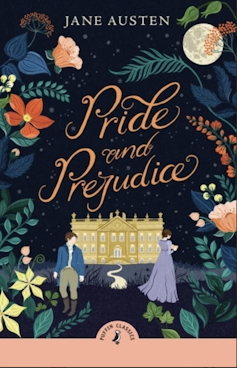Why you should revisit the classics, even if you were turned off them at school
- Written by Johanna Harris, Associate Professor, Literature, Western Civilisation Program, Australian Catholic University

Throughout my school years I had an exuberant, elderly piano teacher, Miss Hazel. She was one of five daughters (like me) and, like many young women of her generation, had never married her sweetheart because he did not return from the war.
Her unabashed gusto for life and infectious, positive outlook left an indelible impression upon me. So too did the memorable fact that Miss Hazel read Jane Austen’s Pride and Prejudice from beginning to end once every year.
As a younger girl I wondered about the ways Pride and Prejudice could be so important to a woman in her eighties that she would want to read it annually. Was it to do with Austen’s depiction of a family with five daughters, or to relive an endearing love story?
Since those years I have seen, more through lived experience than through academic study, just how deeply meaningful the reading of classic books, like Pride and Prejudice, can be.





